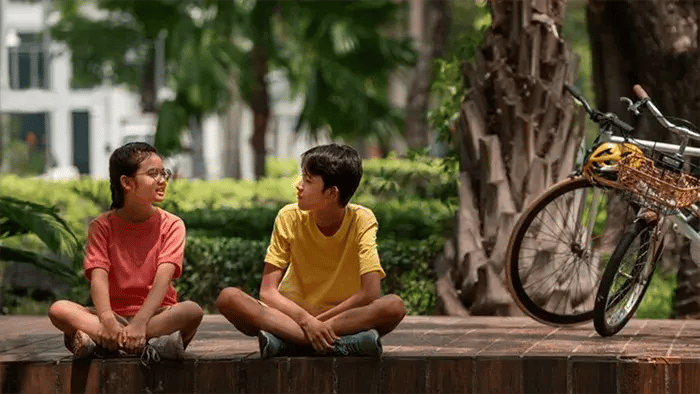- Well-Controlled Emotions
- Improved Attention and Focus
- Improved Empathy and Compassion
- Less Anxiety and Stress
- Improved Conflict Resolution Skills
- Greater Self-Esteem
- Better communication in social relationships
Introduction
More than ever, in today's world, it becomes important to teach how to handle one's emotions and interact positively with others, as this is more than ever exposed to distractions and stressors. Mindfulness is an ancient practice that has its roots firmly embedded in Buddhist philosophy and helps children sail through their social environments effectively. Mindfulness is a state of present-moment awareness that deeply enhances children's ability to bond more healthily and develop better communications.
What exactly is mindfulness?
Mindfulness is a process that involves drawing one's awareness to the immediate environment, characterized by being nonjudgmentally aware of all thoughts, sensations, and emotions. The concept was borrowed from Buddhist meditation but applied in modern psychology to deal with stress, anxiety, and many more disorders affecting mental health. The actual idea at the bottom of it is that one ought to allow internal and external experiences to pass in front of one's awareness without judgment. This practice is said to increase control over one's emotions, ultimately decreasing stress and increasing mental health. For children, mindfulness in daily activities can be a great implement in keeping them passive, focused, and emotionally stable. Therefore, the introduction of it to education would give the children social skills and abilities through emotional intelligence.
The Impact of Mindfulness on Children's Social Skills
Well-Controlled Emotions
Mindfulness imparts the ability to children to know their emotional state and accept them without getting overcome by such emotions. That awareness gives them a bigger chance of taming emotional reactions—not acting impulsively to engage in fights. By knowing one's feelings, an emotion can understand the feelings of another party therefore laying a basis for social health interactions.
Improved Attention and Focus

Practicing mindfulness helps children come to have better control over the direction of attention. This improved focusing ability makes them capable of keeping listening during conversations, maintaining social cues, and responding appropriately. Better attention skills enable a child to engage more deeply in social interactions and thus be more present and responsive to other peers.
Improved Empathy and Compassion
It nurtures a non-judgmental attitude toward one's thoughts and feelings in developing them to deal with others. With mindfulness, your children are more likely to approach social situations with empathy and compassion. They become better at grasping another person's point of view and feelings, hence forming positive and supportive relationships.
Less Anxiety and Stress

This relaxation and stress reduction brought about by practicing mindfulness enable children to feel at ease when they are in company, thus creating a better environment for developing social skills. Lower levels of anxiety make it easier for children to engage with others and participate in activities involving more than one person. The easiness and confidence this creates can develop their social skills, making them more approachable and open to making friends.
Improved Conflict Resolution Skills
In this way, mindfulness practice will teach children to stop and reflect before reacting to disputes. Adopting this habit of reflection will allow a person to respond to disagreements in a much calmer manner than with immediate anger or frustration. Mindfulness therefore enables the child to develop healthier, more constructive social interactions due to the enhanced ability for conflict resolution.
Greater Self-Esteem
Mindfulness allows children to further develop a positive image of themselves by enhancing self-acceptance and quelling the critic within. Higher self-esteem could yield confident social interactions and relations because the child is more secure in their self-worth and expressions of their abilities. Such confidence would make creating and maintaining friendships easier, as they aren't easily hampered by self-doubt or social anxiety.
Better communication in social relationships

Mindfulness develops proper channels for expressively communicating well with others in children, making them more receptive to a sender and more thoughtful in their responses. They are fully present while talking, which makes them even more attentive and considerate as communicators. Such improved communication provides clearer, more meaningful interactions that aid the development of stronger social bonds in children.
Deepali is a senior food and wellness writer with over a decade of experience in top media houses, crafting engaging narratives. She is a professional home baker and loves exploring food from every corner of the world to reading cookbooks. She believes a healthy lifestyle is a combination of both mental and physical fitness. Her goal always remains to keep moving, eating seasonal and practicing gratitude.
The views expressed are that of the expert alone.
The information provided in this content is for informational purposes only and should not be considered a substitute for professional medical advice, diagnosis, or treatment. Always seek the advice of your physician or another qualified healthcare provider before making any significant changes to your diet, exercise, or medication routines.
References
https://www.waterford.org/education/mindfulness-in-schools/
https://mindfulnessinschools.org/wp-content/uploads/2013/02/MiSP-Research-Summary-2012.pdf
















